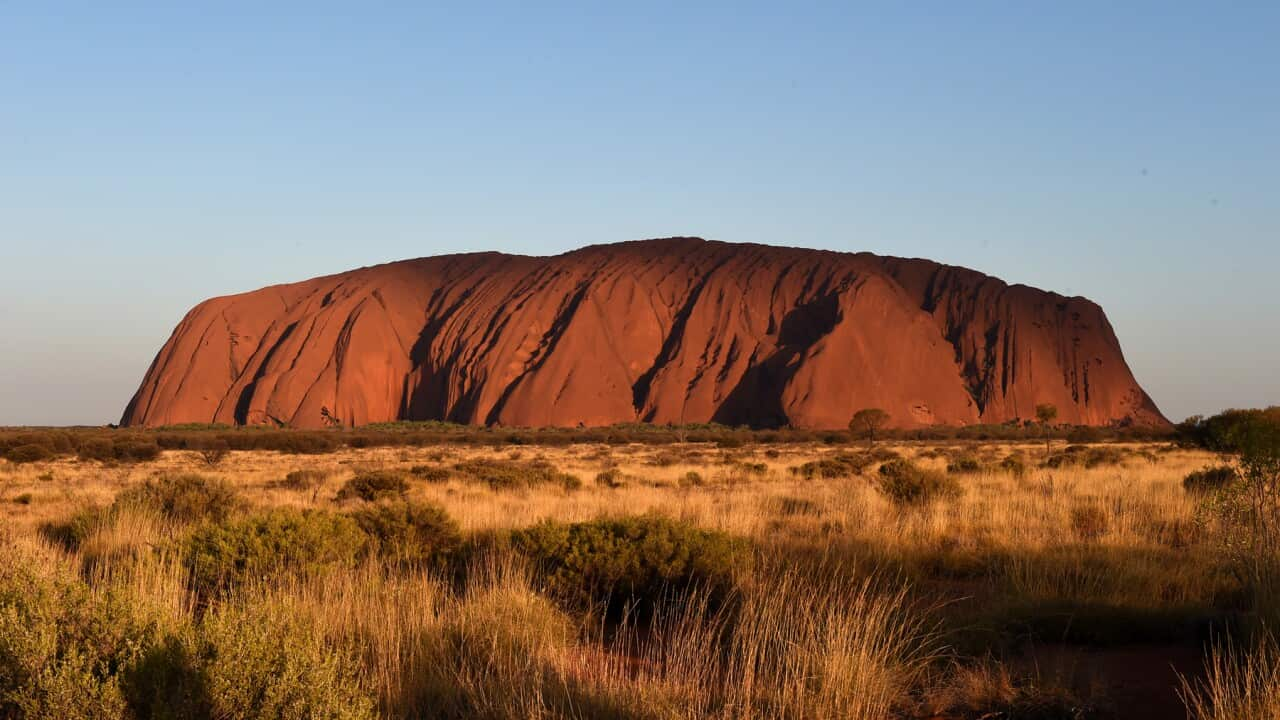Alessandra Pusceddu visited Australia for the first time in the early '90s. She has a vivid memory of her travels.
“What caught my attention then, and still echoes in my memory today are the exceptional colours of the country, in particular the red of the desert," Pusceddu tells SBS Italian.
Indeed she was so impressed by the red sand at the time that she returned to Italy with a token of her trip: a half-lite plastic bottle filled with sand collected at the Uluru-Kata Tjuta National Park. For almost 30 years, the bottle rested on her shelves, but something felt wrong and over time she felt increasingly uncomfortable with having taken the dirt as a souvenir.
For almost 30 years, the bottle rested on her shelves, but something felt wrong and over time she felt increasingly uncomfortable with having taken the dirt as a souvenir.

The bottle of sand Source: Courtesy of Leo Muscetta
“I was a different person 30 years ago," she says "I wasn’t particularly aware of ecological or Aboriginal issues... Today, I believe that taking that sand was disrespectful of the land - and it was wrong especially in a sacred area as Uluru.”
But, when she learned that a friend was soon to visit Australia she thought it was time to return the soil.
“Finally being able to return the sand to its land was the only right thing to do, I felt really sorry for what I have done.”
Her friend Leo Muscetta took the plastic bottle together with a letter from Pusceddu saying “I repent [for my action] and asked my friend to put the sand back where it belongs.” Landing in Perth, Muscetta declared what he was carrying to Australian customs officials, knowing they're particularly strict when bringing in soil or water for fear of contamination.
Landing in Perth, Muscetta declared what he was carrying to Australian customs officials, knowing they're particularly strict when bringing in soil or water for fear of contamination.

The “declaration of repentance” Source: Courtesy of Alessandra Pusceddu
“The customs officers were extremely understanding: they took the bottle, sifted the sand to clear it of small wood or leaf fragments and put it back in the bottle," Muscetta tells SBS Italian.
After a month traveling in WA, Muscetta arrived at the Uluru-Kata Tjuta National Park.
There, finally he could “set the sand free” as he read a speech he wrote for the occasion:
“For too long the grains of sand have been confined, trapped, locked up and segregated. Without seeing a sunrise, or a sunset... The red earth of Australia is going back to its origins.”
The sand’s return corresponded with the official permanent climb closure of Uluru.
Pusceddu decided to tell her story to help others understand “the importance of respect, towards nature and the places we visit”.
“The symbolic return meant a lot to me, it is only a small act but I hope it will inspire others to be mindful when visiting foreign lands.”
